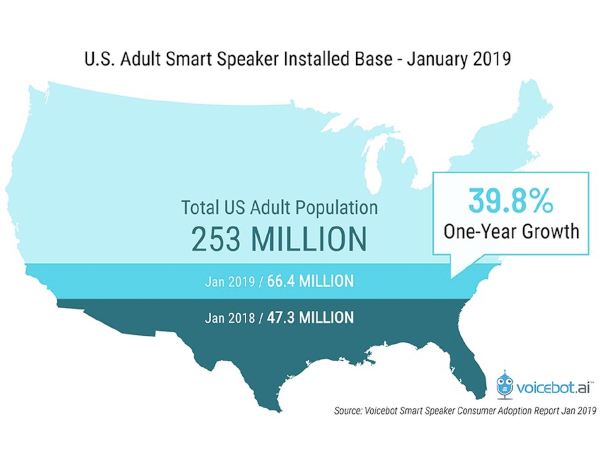How to Optimize for Voice Search
“Hey Siri, what time is it?”
“Hey Alexa, what’s the weather?”
“Hey Google, what is the meaning of life?”
—
From smart speakers to chatbots, computing software is becoming more developed and gaining more insight into user expectations. It’s easier than ever to ask intelligent virtual assistants (IVA) or intelligent personal assistants (IPA) to do our bidding as voice recognition becomes more robust—Siri makes our phone calls, Alexa plays our music and Google reserves a spot at that restaurant you wanted to try this weekend.
But what does this mean for us as marketers?
We need to ensure web content is optimized for voice search.

State of Voice Search
According to HubSpot, about half of smart device owners today are using the voice driven personal assistant as a part of their daily routine. People typically use these devices to check the weather (16%), shop online (15%) and listen to music (11%). Only 8% of users cited internet search queries as their primary use case – a percentage that we expect to increase exponentially.
Although 34% of people have never used a voice assistant, smart speaker ownership grew 40% in 2018, reaching 26% of the U.S. population. And, with voice search queries expected to encompass half of all Google searches by 2020, progress in the industry is only expected to escalate.

And what assistant is the most popular for voice searches? Siri and Google Assistant sit at the top of the social ladder. These assistants are the most popular due to the widespread use of mobile devices with these preinstalled services.
Voice Search Optimization (VSO)
Voice search optimization, or VSO, is a new discipline within digital marketing that forces us to think about content in light of the increasing use of voice searches. Overall, the strategy is similar to normal organic SEO. We are still writing relevant content to help a user solve a problem, but now we need to phrase and organize content differently.
When users conduct a voice search, they are looking for an immediate answer to an immediate need. This isn’t a situation where the user will be spending time scrolling through search results and looking for the most relevant result. IVAs / IPAs use Google’s Featured Snippet, so we must optimize our content to appear in this section of search results for a given search query.
How to Optimize for VSO
When people interact with their IVA / IVP device, they do so in a way they would ask another human. So instead of Googling “best taco,” users may ask “What’s the best taco near me?” Searches will need to be optimized for long tail natural sounding keywords.
How to optimize content for voice search:
- Build long-form content that is optimized for related queries
- Format your content clearly with H2 and H3 header codes and optimize images, pages and content for speed
- Build up your traditional SEO best practices
Long-Form Content
Long-form content gives Google bots more content to crawl to better identify how you might answer a question. Word-counts around 2000-2500 seem to be the sweet spot here, with multiple topics addressed within the page. The goal is to build pages that specifically cater to appear as Featured Snippets. Content needs to be simple and around an eighth-grade reading level to facilitate easy comprehension for both the bots and the user.
Formatting
Many pages that rank highly tend to have the target query or answer within H2 and H3 coded subheadings, with the answers coming directly after. If you’re thinking FAQ pages, you’re on the right track. The IVA / IVP will parse the user query, search for it, choose the most trustworthy and relevant answer and send it back to the user within seconds. If the question is clearly highlighted within an H2 or H3, the search will be quicker, the user will be happier and your content will get more brownie points with the search engine.
SEO Best Practices
Traditional organic SEO rankings are still ultimately what drive Google to mark your site as the most reliable place to obtain answers. 97% of answers provided by Google Assistant ranked in the top 10 organic results, and 80% of answers were returned from the top three organic results. Good SEO means good rankings, which means good results. Read more about Magneti’s SEO optimization services!
We didn’t have to tell you that technology is rapidly advancing and that users are impatient in getting answers to their questions. Take into account voice search as you build out your web content and become best friends with Siri, Alexa and Google Assistant. Questions? Ask Siri – just kidding. Too soon? Contact us with your Q’s today!